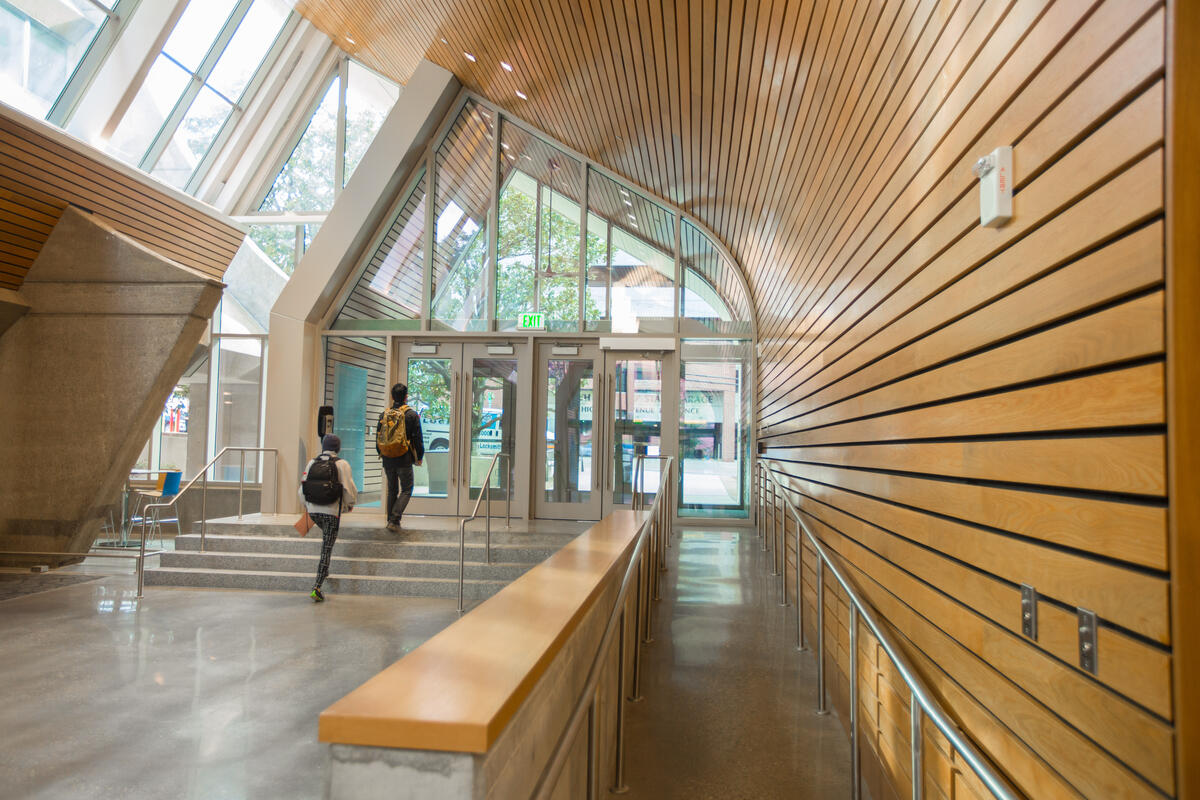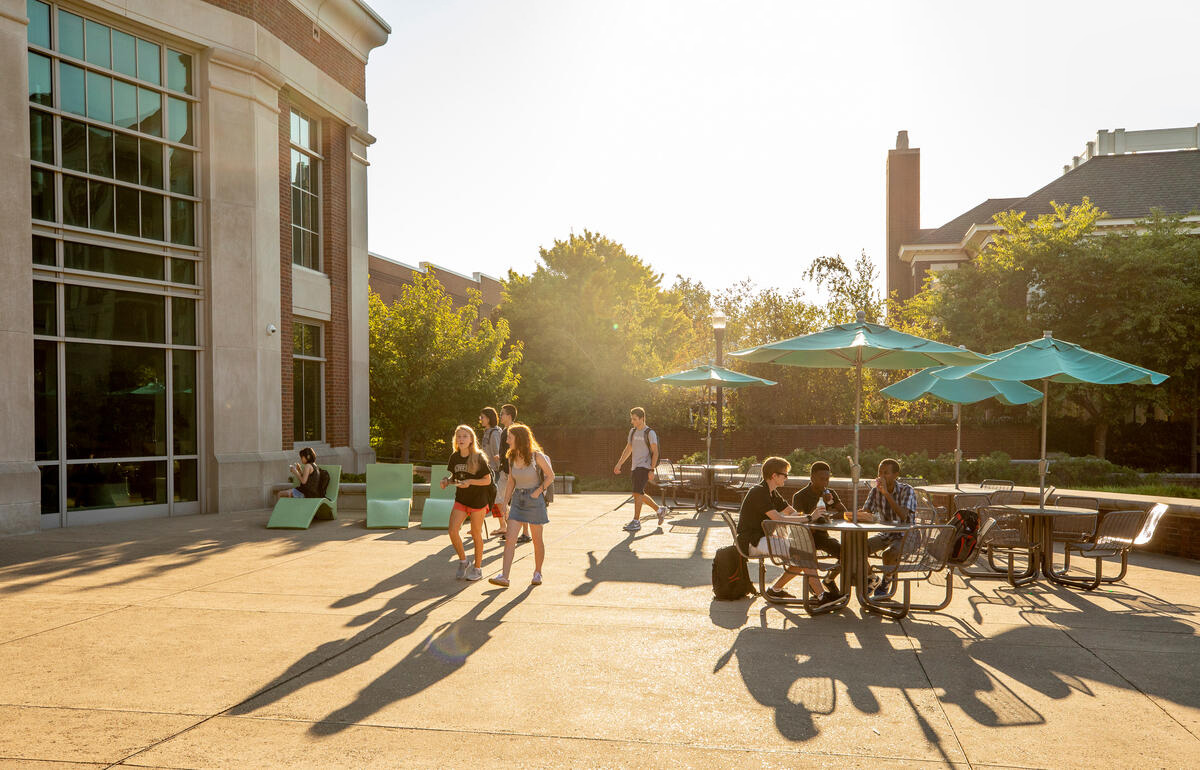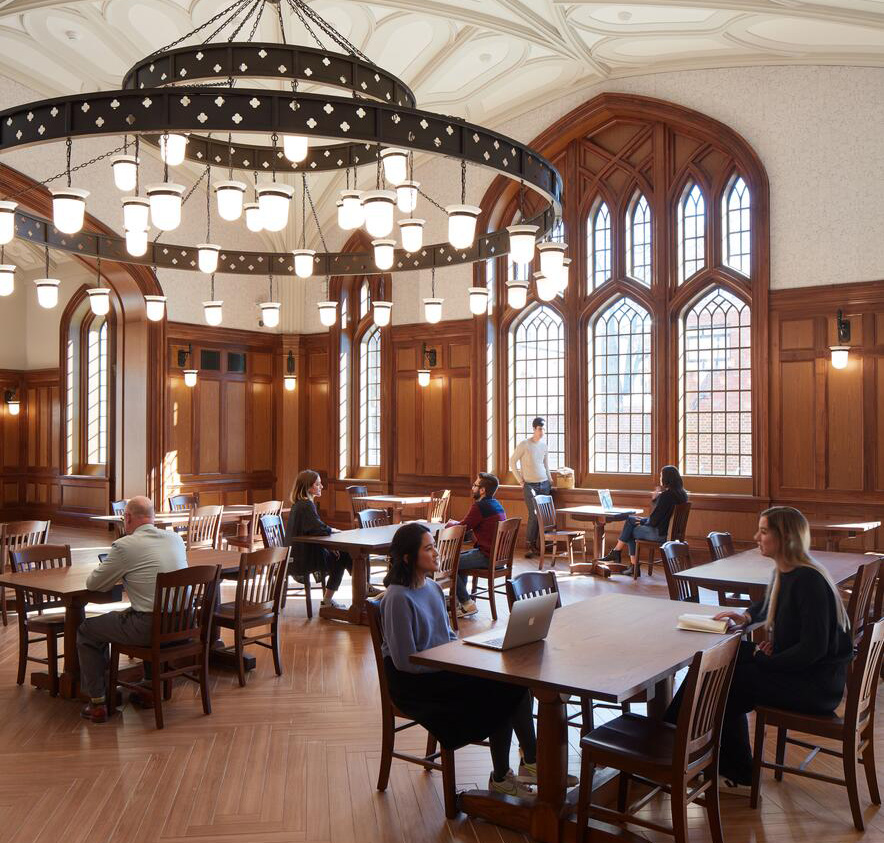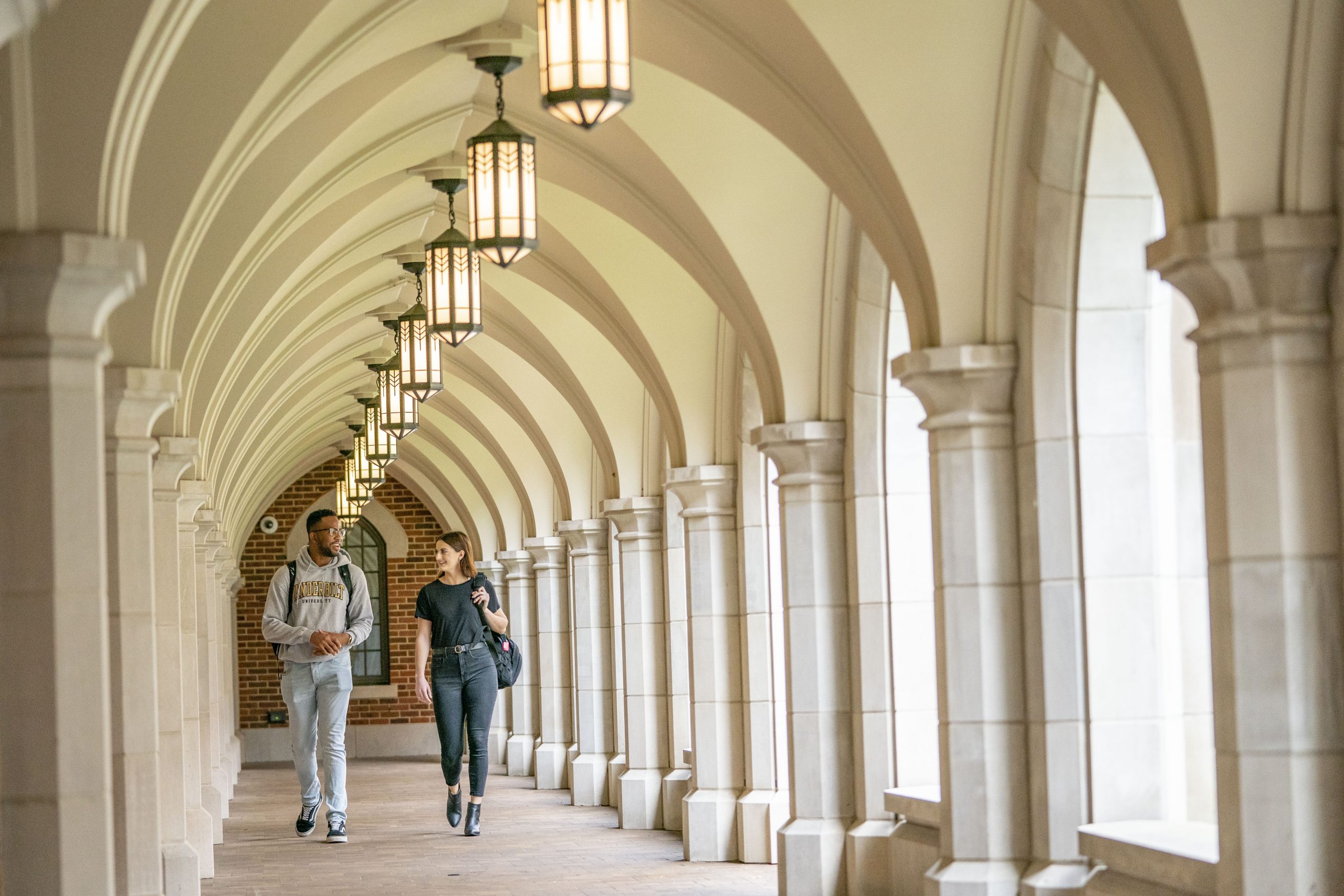At Vanderbilt, learning happens all the time – in classrooms and labs, at internships and during study abroad, and even in your campus residence. Is the academic environment intense? Sure. But you'll also find it collaborative and supportive.
Vanderbilt blends a top-tier research university with a teaching-focused liberal arts curriculum. With four undergraduate schools and colleges, over 70 majors, and 72 minors, you’re never at a loss for ways to explore your interests or discover new passions.
Whether you’re participating in research with faculty, developing your Immersion Vanderbilt project, or even chatting over dinner with your faculty head of house, at Vanderbilt, you’re a part of a collaborative intellectual community.
Four Schools
At Vanderbilt, we offer world-class academic programs through four undergraduate schools:
Programs of Study
At Vanderbilt, we encourage students to study across disciplines to feed their passions and inspire new ways to address issues and impact the world. Over the years, we’ve learned that you can’t contain a neuroscientist’s love of dance any more than a mechanical engineer’s fascination with pre-Columbian tribes – that's why most Vanderbilt students take a variety of classes across our undergraduate schools. Use the find your major tool to explore our majors, minors, and pre-professional programs and discover your own academic path at Vanderbilt.

Undergraduate Research
At Vanderbilt, you will have the chance not only to absorb and apply invaluable lessons from your professors, but also to take part in their innovations and create new avenues of knowledge for future generations. You’ll join a community of collaborative scholars often engaged in research that spans traditional disciplinary lines. The combination of Vanderbilt’s low 8:1 student-to faculty ratio and the culture of close faculty-student interactions means that undergraduates frequently work one-on-one with faculty engaged in cutting-edge research.
Recent student research projects:
College of Arts and Science
- “Implications of Decreasing Sea Ice on Arctic Extreme Weather Events Along the Northwest Passage,” Jacob Schenthal (’21, Covington, Kentucky)
- “Investigating the Neurological Implications of AP4 Coat and Autophagy Machinery Co-Evolution,” Carli Needle (’21, Potomac, Maryland)
- “Constituencies of Political Authoritarianism: Struggle, Survival, and Separatism in the Donets Coal Basin (1989–2014),” Dominic Cruz Bustillos (’21, San Rafael, California)
- “Support for Whom? Goals, Challenges, and Successes of Community Supported Agriculture,” Emily Joella Hartzler (’21, Phoenix, Arizona)
Blair School of Music
- “The Orchestra As a Tool For Social Good,” Eric Whitmer (’23, Redding, California)
- “Film in the Weimar Republic: The Cultural and Political Intricacies of the Soundtrack,” Emma Kirby (’22, Fort Collins, Colorado)
- “Twentieth-Century Woman: Music about the 19th Amendment in Tennessee,” Sarah Clements (’20, Atlanta, Georgia)
- “Back to the Future: The Newtro Trend and its Influence on Nostalgic Directionalities in K-Pop and K-Drama OSTs,” Somerset Peede (’22, Hillsboro, Virginia)
School of Engineering
- “Development of Tissue- Mimicking Phantoms to Validate a Novel Low-Cost Neuroimaging System,” Jessica Handwerker (’23, Lafayette, Colorado)
- “A Toolchain for Statistical Methods in Emergency Response Management,” Hunter Baxter (’23, Sarasota, Florida)
- “Lateral Flow Diagnostic for Sickle Cell Disease,” Sophia Pannullo (’23, Bedminster, New Jersey)
- “Design of Radiation-Hardened Analog, Mixed-Signal, and RF Circuits,” Benjamin Fahrenkrug (’23, Waukee, Iowa)
Peabody College of Education and Human Development
- “Developing an Automated Method to Quantify mRNA in Retinal Müller Cells,” Vineet Desai (’21, Mission Viejo, California)
- “Coping Among Adolescents Exposed to Adverse Childhood Experiences,” Sarah Kirshner (’22, Delray Beach, Florida)
- “The Influence of Sequence Reversal on Event Perception,” Yining Ding (’22, Cujin Roa Dalian, China)
- “Parental Conflict & Neural Response to Social Reward as Predictors of Response to Cognitive Behavioral Therapy in Depressed Adolescents,” Nicole Herman (’22, Weston, Connecticut)
- “The Link Between Reading Strategies and Executive Functions in Text Comprehension,” Emily Hong (’22, Suwanee, Georgia)
"Once I looked into all of the impressive work that Vanderbilt faculty were up to, I knew I wanted to get involved. Vanderbilt researchers have an impressive array of accolades and interests and I think that there’s something for everyone!"
Immersion Vanderbilt
Immersion Vanderbilt calls for each undergraduate student to participate in an intensive learning experience that takes place in and beyond the classroom. Students will have the opportunity to pursue these experiences along four different pathways: civic and professional, creative expression, international, or research. Immersion Vanderbilt allows students to explore their passions and interests, transforming their ideas into action that makes a difference in the world.
Immersion Vanderbilt provides undergraduate students with the opportunity to pursue their passions and cultivate intellectual interests through experiential learning.
Study Abroad
Vanderbilt’s commitment to academic excellence, global engagement, and community service extends far beyond Nashville. With more than 120 Vanderbilt-approved programs offering study abroad for a semester, a summer, a Maymester, or an entire academic year, undergraduates enhance their studies with academic experiences and cultural, research, internship, and volunteer opportunities on seven continents. Vanderbilt’s Global Education Office offers programming for all Vanderbilt students, including those with the most demanding plans of study.
Studying abroad is an integral part of the undergraduate experience at Vanderbilt. About 50% of Vanderbilt undergraduates study abroad, from all schools and across most majors.
Living and Learning at Vanderbilt
Residential education is the heart of the Vanderbilt experience. Learning at Vanderbilt takes place 24 hours a day, 7 days a week, whether you’re in the classroom or a common room, a laboratory or the dining hall.
Your experience at Vanderbilt begins on The Martha Rivers Ingram Commons, where all first-year students live in 10 houses along with faculty heads of house and the dean of The Commons. The Commons is the center of your first-year universe, where you’ll find deep friendships, powerful ideas, and transformational faculty mentorships—all of which cultivate a true living and learning environment.

After spending your first year on The Commons, you can apply to live in one of our distinctive residential colleges. With a faculty head of college as its intellectual leader, each college offers a robust array of programs, spaces, and relationships intentionally designed to meet students’ needs during their second, third, and fourth years of college.

Overall, Vanderbilt’s residential experience invites students, faculty, and staff to go beyond the boundaries of the lab and the lecture hall to encourage discovery across disciplines among a diverse community of talented scholars.
